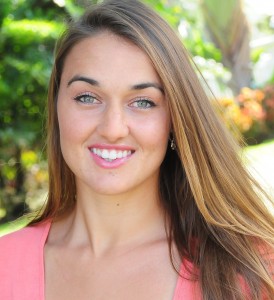“Who Moves?” is a two-part series that discusses the differences between Shared Living and a Family Host Home/Adult Foster Care and why the distinction between these terms is important.
As the Housing Director at Madison House Autism Foundation, I am a supporter of the broad range of housing options for individuals with autism and other intellectual/developmental disabilities (I/DD). In fact, my fiancee and I are in the process of becoming a Host Family Home to our friend on the autism spectrum. We consider it a fantastic opportunity to create a neurodiverse household while receiving compensation for sharing our home, relationships, and natural supports.
Our Host Family Home arrangement is not permanent; rather it is a stepping stone for him to one day live on his own or with a roommate. We have an understanding that if my mother becomes ill or another member of our family is in crisis and can no longer care for themselves, this family member will move into my home, and my friend will leave. He understands this arrangement, has been given alternative options, and yet still wants to live with my partner and me.
Who moves when the relationship change is the biggest difference between Shared Living and a Family Host Home/Adult Foster Care. Do individuals with I/DD understand that there is an alternative that put them in control of their housing choices?
I visit homes and communities where Shared Living is centered around the home of individuals with I/DD and structured around the ebb and flow of companions, assistants, or host families moving in and out over the span of many years. The individual stays put and in control of the home. L’Arche homes, Camphill communities, Friendship Houses, and a growing number of family-driven projects are some great examples of shared living.
Why is terminology so important?
“Shared Living” is defined within the elderly population as a living situation where a tenant pays reduced rent or lives rent-free in the home of an elderly individual in exchange for defined supports. In contrast, “Shared Living” in the disability community is regarded as synonymous with “Adult Foster Care” and “Host Homes,” which is when a family or individual houses and supports an individual in exchange for monthly compensation.
The multiple, population-specific interpretations of “Shared Living” present several challenges. First of all, there is confusion over what these terms mean as different government systems use the same federal funding streams to meet the needs of both adults with I/DD and the elderly population. Another concern is whether individuals with I/DD and their families are given the option of inviting someone into the home for “shared living.” Furthermore, with a fluctuating rental market and the growing need for families to take in their aging parents, are states promoting an unsustainable solution that causes even more instability and lack of control for individuals with I/DD?
Across the country, policy is moving towards giving individuals with I/DD more control and choice over their home and the provision of support. Federal regulations specify different mandates for settings that are “consumer-controlled” and those that are “provider-owned or controlled.”
When an individual with I/DD lives in a consumer-owned or controlled environment (i.e., the individual rents or owns the home), he chooses his providers and roommates. Separating home and support system allows for more housing flexibility because a person is not attached to his provider. He can change providers without having to move from his home. The term “Shared Living” should be preserved for Shared Living arrangements in which the individual with I/DD maintains control and thus ensures long-term stability of his home. They can not be asked to move if the relationship changes, and more importantly, they can request for their supportive roommate to leave if the relationship no longer serves its original intent.
Adult Foster Care or Host Family Homes are examples of provider-owned and controlled settings. The home and support services are completely tied. An individual with I/DD can be asked to leave upon request of host family regardless of how the person with I/DD feels about the decision. If the relationship begins to strain, the individual with I/DD must move to access his supports from a different host family. The setting has a different power relationship.
I invite you to view the following videos of neurotypical residents who move into a neurodiverse household to offer natural supports. Their relationships do not have strings of compensation or power attached to them as, at any time, neurotypical roommates could be asked to leave. Check out the videos below to hear the voices of life-sharers, and stay tuned for Part 2 of “Who Moves Out?”
Example 1: Innisfree Village
Example 2: L’Arche WA
Part 2 of this series will include a discussion of 2011 publication by the National Association of State Directors of Developmental Disabilities entitled “Shared Living Guide” as well as the issues of stability and sustainability.
ABOUT the AUTHOR

Desiree Kameka, Director of Community Education & Advocacy at Madison House Autism Foundation
Desiree’s work focuses on researching housing issues, advocating for autistic adults and their issues, and presenting her work at local and national gatherings. She visits many residential communities and social enterprises across the USA and highlights their unique victories and learning curves while sharing stories of residents with autism and other developmental disabilities. Desiree is also the project lead for Madison House’s interactive Autism Housing Network, which is currently in BETA testing. Her passion is empowering autistic adults and parents to create a future that is exciting and life affirming by offering small group consultations for forming projects.
 Helping Students With Autism Thrive: The Job Search
Helping Students With Autism Thrive: The Job Search


